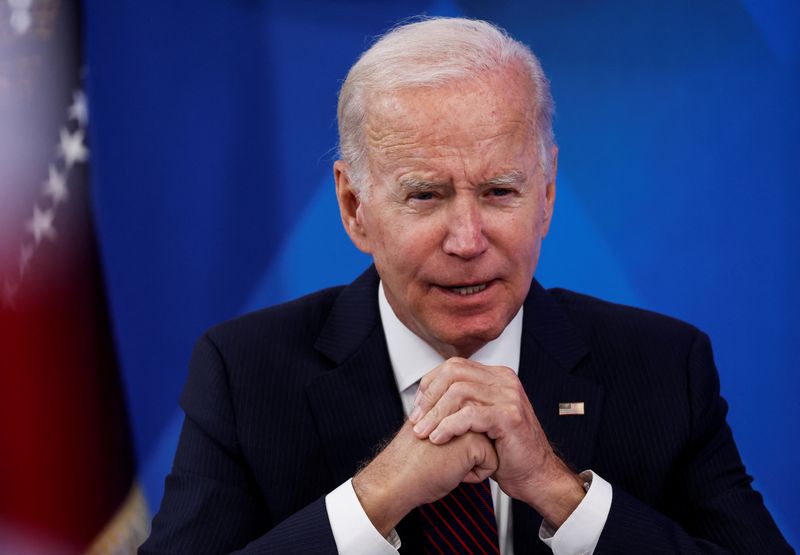By Andrea Shalal
WASHINGTON (Reuters) - Two years after enactment of U.S. President Joe Biden's $1.9 trillion American Rescue Plan (ARP), the program has delivered over 10.3 million payments to renters in need and aided more than 30,000 state and local governments, data showed on Monday.
Treasury said 99% of the $350 billion of ARP money set aside for state and local authorities and Tribal governments has been delivered, and states have already budgeted for 90% of those funds, although funds may flow out over time.
New Treasury data through the end of December show that $24.3 billion has been budgeted for 7,000 big infrastructure initiatives in broadband, water and sewer, expanding high-speed internet access for over 1.4 million families and businesses, with nearly $16 billion budgeted for 2,100 housing projects.
Additional budget plans by states and local governments include $12 billion for 5,300 public health projects and $11 billion more for 3,500 workforce development projects training workers for new, higher-paying jobs, Treasury said.
Biden's COVID relief package passed without any Republican votes, raising the prospect that Republican-controlled states and local governments could refuse to participate, as they did with Medicaid funds under former President Barack Obama.

But Treasury data show both Democratic- and Republican-controlled states and local governments have tapped ARP funds to provide pandemic relief and invest in projects with long-term impact, such as boosting access to high-speed Internet.
Wyoming's Republican Governor Mark Gordon last month announced his statement had been awarded $70.5 million in ARP funds to build broadband infrastructure in locations that lack access to adequate service, bringing high-speed internet to an estimated 11,700 Wyoming homes and businesses.